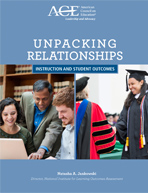Can we anticipate graduate student success if we can’t assess it?
How we choose the next generation of scientists is at the root of a sustainable scientific enterprise. The true value of a PhD may therefore be in training leaders who can advance science, while also gaining the necessary skills to succeed both during and after graduate school. A successful graduate of a PhD program must be able to contribute expertise or knowledge to advance a particular field. To attain this goal, they must possess skills such as critical thinking, problem solving, perseverance, conviction, and adaptability. These traits cannot be assessed by certain quantitative measures which graduate schools rely on during the initial stages of the admissions process. This practice eliminates otherwise promising candidates from the pool of applicants considered competitive for graduate school.
[MORE]









